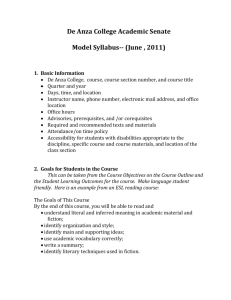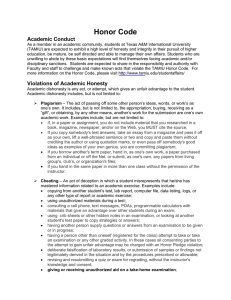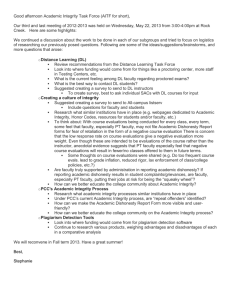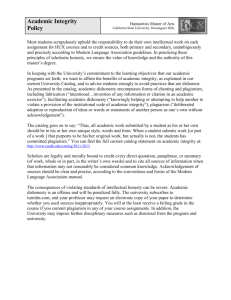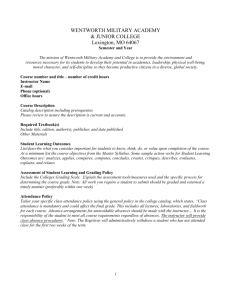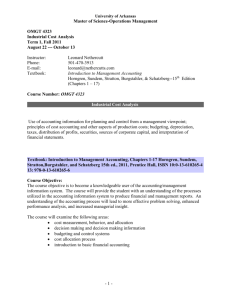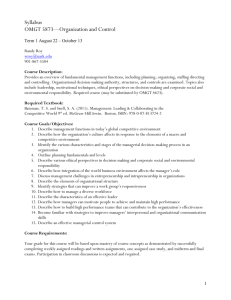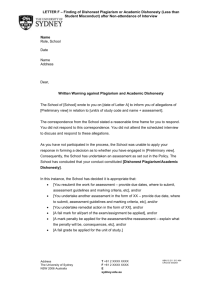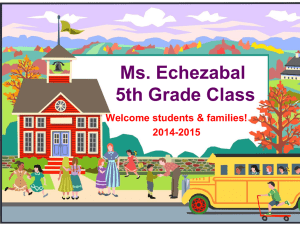Handout
advertisement
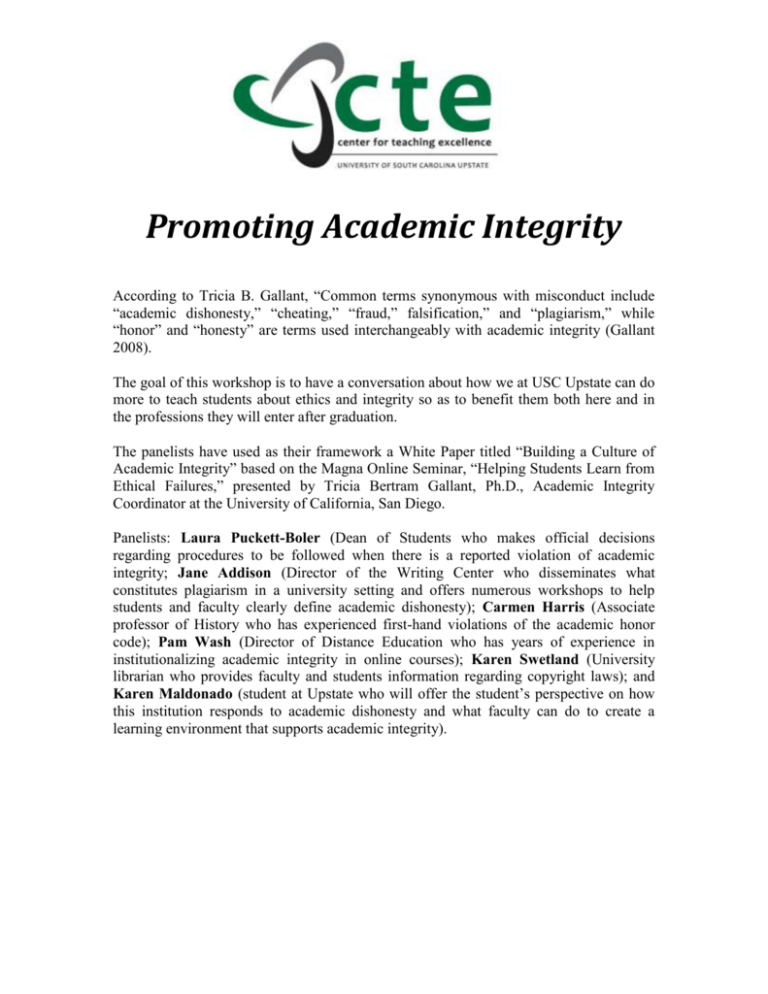
Promoting Academic Integrity According to Tricia B. Gallant, “Common terms synonymous with misconduct include “academic dishonesty,” “cheating,” “fraud,” falsification,” and “plagiarism,” while “honor” and “honesty” are terms used interchangeably with academic integrity (Gallant 2008). The goal of this workshop is to have a conversation about how we at USC Upstate can do more to teach students about ethics and integrity so as to benefit them both here and in the professions they will enter after graduation. The panelists have used as their framework a White Paper titled “Building a Culture of Academic Integrity” based on the Magna Online Seminar, “Helping Students Learn from Ethical Failures,” presented by Tricia Bertram Gallant, Ph.D., Academic Integrity Coordinator at the University of California, San Diego. Panelists: Laura Puckett-Boler (Dean of Students who makes official decisions regarding procedures to be followed when there is a reported violation of academic integrity; Jane Addison (Director of the Writing Center who disseminates what constitutes plagiarism in a university setting and offers numerous workshops to help students and faculty clearly define academic dishonesty); Carmen Harris (Associate professor of History who has experienced first-hand violations of the academic honor code); Pam Wash (Director of Distance Education who has years of experience in institutionalizing academic integrity in online courses); Karen Swetland (University librarian who provides faculty and students information regarding copyright laws); and Karen Maldonado (student at Upstate who will offer the student’s perspective on how this institution responds to academic dishonesty and what faculty can do to create a learning environment that supports academic integrity).


